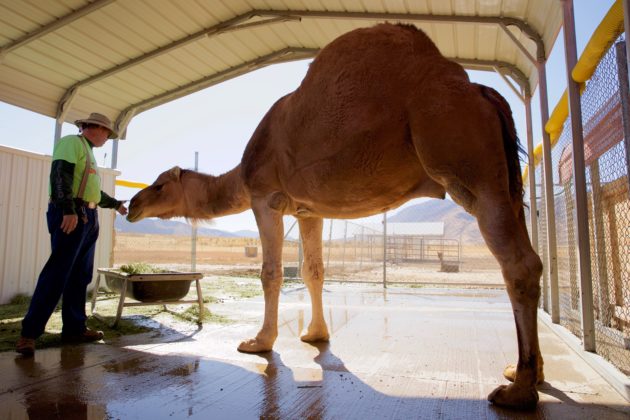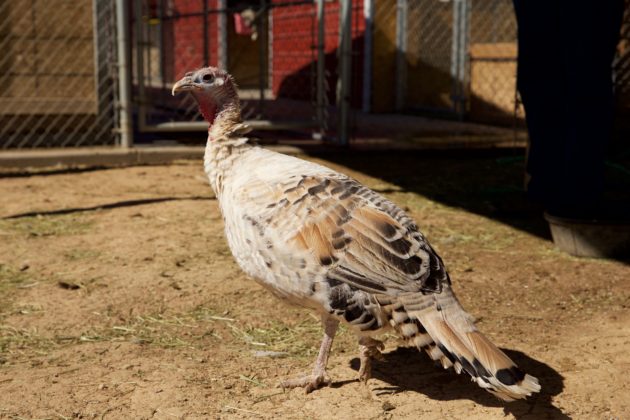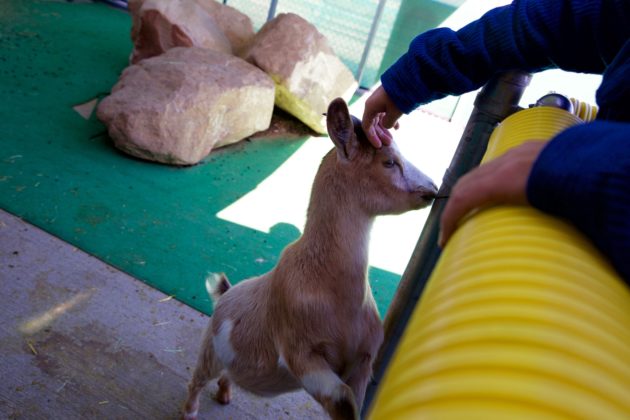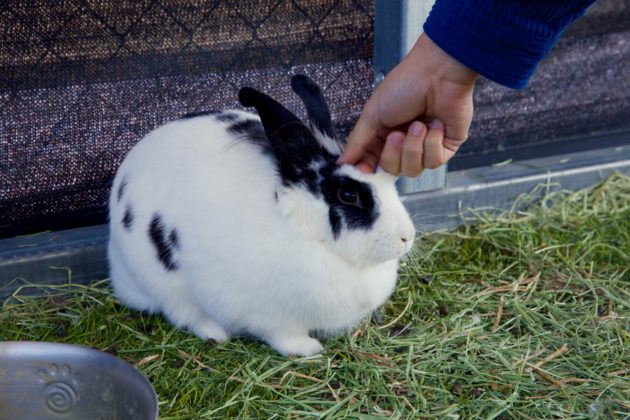Read or listen to a Portuguese translation of this story here
An unlikely attraction is situated by the Flying J gas station in Scipio, Utah, off exit 188 for drivers traveling on I-15 — a petting zoo.
The Scipio Petting Zoo not only offers a great time for the employees who care for the animals daily but also for visitors from all over the world.
BYU student Ashley Pasley was first introduced to the Scipio Petting Zoo when she was making a trip with some friends to Saint George to visit her parents. When her friends saw the zoo from a distance, they decided to stop and take a break from the long drive.
Pasley said she was sleeping when they first pulled up to the gas station and did not expect to see what was there when she woke up from her nap.
“I see all these animals just outside of a gas station, which was so random to me,” Pasley said.
Despite the unexpected nature sights, she said it was fun to see on such a monotonous drive. “It was so unexpected for me that it was really cool,” she added.
Pasley said she wished she would’ve known of the petting zoo earlier, so she could’ve enjoyed seeing more animals during the day instead of just a few at night on her way down south.
“Who doesn’t love animals?” she asked. “(It’s) something that I want to tell people about,” she said.
Owner and founder of the Scipio Petting Zoo Daniel Davis, opened the petting zoo when he noticed the uninhabited acres which surrounded the gas station he managed. He described the process as more complex than simply building a fence and putting a few animals inside.
Davis and his crew followed the U.S. Department of Agriculture’s regulations to ensure they were executing their plans for the zoo safely and effectively. After several months, they were approved as a recognized zoo by the U.S. Department of Agriculture.
DeRay Quarnberg, who started the petting zoo with Davis, said the U.S. Department of Agriculture was helpful as the zoo was getting on its feet.
“(The USDA) had some great ideas of their own they’ve helped us incorporate, not only so it’s user-friendly but so it’s safe for the animals and safe for the people,” Quarnberg said.
Davis expressed that many of their first animals came from donors who simply were trying to get rid of animals they did not want. Eventually, enough animals were donated for Davis and his crew to breed and raise their own.
“When we first started, we didn’t know what we were doing, and so we got a lot (of people) who gave us animals,” Davis said.
He said he and his crew bottle-fed baby goats as often as six times a day until they were big enough to be left outside. Once the goats moved to outdoor kennels, visiting children passing through town had the chance to feed them, giving the children and their parents something exciting to do before the long ride to their next destination.
Davis said one of the most rewarding parts of the zoo is seeing the reactions of the children. “It’s just nothing but positive.”
Even though the zoo has only been open since 2010, Davis is hopeful that it will be around for many years to come and for many more to enjoy.
He said he misses the zoo dearly when he and his wife leave town for the weekend or go on vacation.
“(When I’m) coming down the summit and I see it sitting there,” Davis said.” I just get a big smile.”
Quarnberg, a Scipio resident, met Davis when he bought the Dairy Queen attached to the gas station Davis was managing at the time. Quarnberg and Davis became close friends and together were able to come up with some ideas on how to get the zoo up and running.
Despite its odd location, Quarnberg said he loves that people from all over the world come to see the petting zoo’s rabbits, baby goats, mini horses and other animals.
“It’s cute and it’s fun and we get a lot of support from all the people,” he said.
Quarnberg said he doesn’t plan to retire any time soon and enjoys his time running the Dairy Queen and welcoming visitors from all over the world who come for a quick rest to play with the animals.
Despite the town’s tiny population of less than 350 people, the petting zoo has been a great opportunity to help some of the youth learn to work, grow and prepare for their future endeavors.
“Everybody’s got to work; everybody’s got to do something. But if you do something you love, it’s like not even working,” Quarnberg said.






















